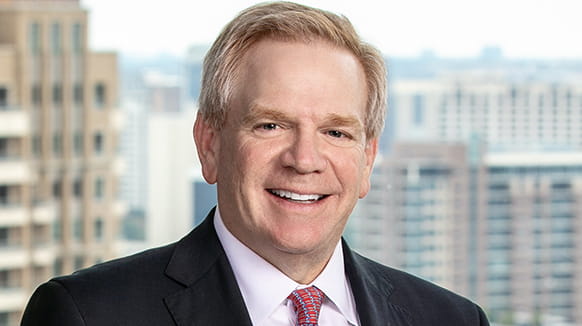U.S. Securities and Exchange Commission (“SEC”) Chair Gary Gensler has publicly expressed his view that Rule 10b5-1 “has become antiquated, exposing gaps in our insider trading enforcement regime.” The SEC’s concern regarding Rule 10b5-1 plans was evident in recent insider trading charges filed against two senior executives of a technology company based in China.
Summary of The Cheetah Mobile Inc. Insider Trading Case (In the Matter of Sheng Fu and Ming Xu)1
On September 21, 2022, the SEC announced settled cease-and-desist proceedings charging the CEO and the former President of Cheetah Mobile Inc. with insider trading, despite both executives having traded the company’s stock pursuant to a purported 10b5-1 trading plan.
In 2015, Cheetah Mobile, which develops mobile phone games and other apps, earned approximately one third of its revenue by placing ads within its mobile games through a key advertising partner. However, during the latter half of 2015, the company’s key advertising partner changed its algorithm for the payment of ad placement fees in a way that would significantly reduce Cheetah Mobile’s ad revenue going forward. As a result, Cheetah Mobile’s ad revenue declined significantly in the fourth quarter of 2015 and the first quarter of 2016. The SEC’s order finds that in the first quarter of 2016, Cheetah Mobile and the company’s CEO misled investors by attributing the initial ad revenue declines to “greater than expected seasonality.” According to the SEC’s order, in May 2016, when Cheetah Mobile disclosed lower-than-expected revenue for the second quarter of 2016 and lowered ad revenue and earnings guidance for the remainder of the year, its stock price fell by 18%.
The SEC order also finds that in late March 2016 – while aware of the significant drop-off in ad revenue from the company’s key advertising partner – Cheetah Mobile’s CEO and its then-President jointly established a purported Rule 10b5-1 trading plan to sell company stock. According to the SEC’s order, in 2016, Cheetah Mobile’s CEO and former President sold 96,000 Cheetah Mobile American Depository Shares pursuant to the plan before the company’s May 2016 disclosure of its ad revenue shortfall, thereby avoiding losses of approximately $203,290 and $100,127, respectively. Based upon this conduct, the SEC charged the two Cheetah Mobile executives with insider trading and ordered them to pay civil penalties of $556,580 and $200,254, respectively.2
The SEC’s settled order also requires certain undertakings of Cheetah Mobile’s CEO if he seeks to make trades pursuant to Rule 10b5-1 trading plans within the next five years. For example, any trading by the CEO pursuant to a Rule 10b5-1 plan cannot commence before a 120-day cooling off period, and the CEO may adopt only one Rule 10b5-1 plan at any given time.
Refresher Regarding the SEC’s Proposed Amendments to Rule 10b5-1 (December 2021)
These undertakings closely track certain provisions of the SEC’s proposed amendments to Rule 10b5-1, published December 15, 2021. The SEC described the proposed amendments as seeking to close certain regulatory “gaps” or abuses in trading pursuant to the plans.3 The proposed amendments would, among other things, add new conditions to the availability of the affirmative defense to insider trading under Rule 10b5-1(c)(1) of the Exchange Act. Specifically, the amendments would:
- Require “cooling off” periods before trading could commence following the initial adoption or modification of Rule 10b5-1 trading plans (corporate officers and directors would be subject to a 120-day cooling off period, and issuers seeking to conduct buybacks of their securities would be subject to a 30-day cooling off period);
- Prohibit overlapping Rule 10b5-1 trading arrangements for open market trades in the same class of securities of any issuer;4
- Limit Rule 10b5-1 trading arrangements to execute a single trade to one plan per 12-month period; and
- Require corporate officers and directors to certify that they are not aware of material nonpublic information regarding the issuer when adopting or modifying a Rule 10b5-1 trading arrangement.
The proposed amendments also would require additional disclosures regarding Rule 10b5-1 trading arrangements, insider trading policies and procedures, and option grants, including:
- Requiring issuers to disclose in quarterly reports the adoption, termination or modification of Rule 10b5-1 and certain other trading arrangements by directors, officers, and issuers;
- Updating Forms 4 and 5 to require corporate insiders subject to the reporting requirements of Section 16 of the Exchange Act to identify transactions made pursuant to a Rule 10b5-1(c)(1) trading arrangement and to disclose all gifts of securities on Form 4;
- Requiring issuers to disclose in annual reports insider trading policies and procedures (or explain why such policies and procedures have not been adopted); and
- Requiring issuers to disclose in annual reports option grant policies and practices, and to provide tabular disclosure showing grants made within 14 days of the release of material nonpublic information and the market price of the underlying securities on the trading day before and after the release of such information.
Key Takeaways:
- Staff from the SEC Market Abuse Unit’s Analysis and Detection Center closely monitor trades by corporate insiders, particularly in advance of significant stock price movements (either positive or negative). Even if trading is conducted pursuant to a Rule 10b5-1 plan, SEC staff may scrutinize whether corporate executives had material nonpublic information at the time they entered into the plan.
- In settling matters alleging improper trading involving Rule 10b5-1 plans, the SEC may now require affirmative undertakings that mirror certain provisions of the proposed amendments to Rule 10b5-1.
For more information on the SEC’s proposed amendments to Rule 10b5-1 or the SEC’s ongoing focus on insider trading, please contact one of the following Haynes Boone lawyers.
2 The order finds that Cheetah Mobile’s CEO and former president engaged in insider trading, and also finds that Cheetah Mobile’s CEO made materially misleading public statements about the company’s revenue trends during the company’s March 2016 earnings call and caused the company’s failure to disclose a material negative revenue trend in its April 2016 annual report. The order charges both executives with violating the antifraud provisions of the Securities Exchange Act of 1934, and also charges the company’s CEO with violating the antifraud provisions of the Securities Act of 1933, and causing the company’s violations of the reporting requirements of the Exchange Act.
3 https://www.sec.gov/news/press-release/2021-256
4 SEC Chair Gensler has stated that this proposed change was designed to prevent corporate insiders from adopting multiple, overlapping Rule 10b5-1 plans, then using material nonpublic information to follow through only on the most advantageous plans.




